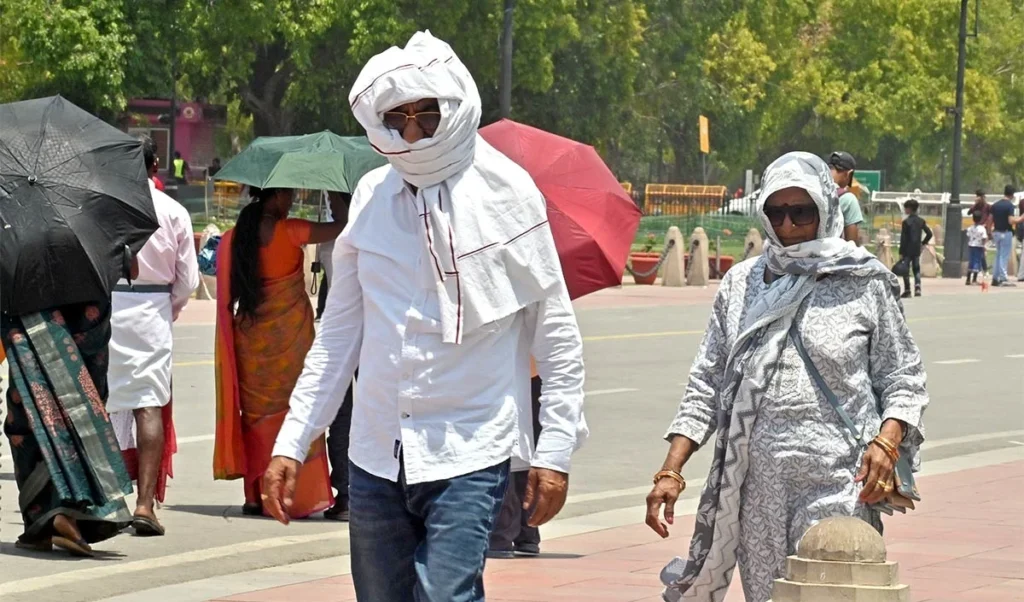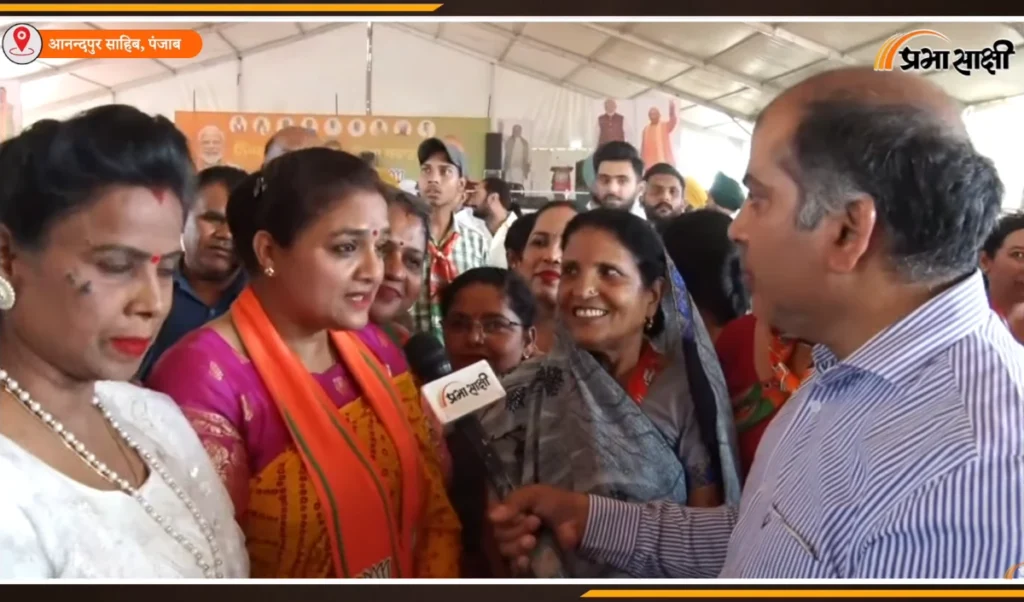This week in CricketInFocus News Network’s special program Shaurya Path, we discussed with Brigadier Shri DS Tripathi (Retd) about issues related to Kargil war, India-China relations and Israel-Palestine. Here is the detailed interview-
Question 1. The country celebrated the 25th anniversary of Kargil Vijay Diwas. How do you view the way Prime Minister Narendra Modi warned Pakistan while addressing the main event organized in Drass on this occasion?
Answer- The Prime Minister’s speech was very inspiring. It was not expected that Pakistan would learn a lesson from it and that is what happened because less than 24 hours after the Prime Minister’s speech, Pakistan’s BAT team tried to attack Kashmir which was foiled by the Indian Army. He said that not only the Prime Minister’s speech was inspiring but the way the Prime Minister had come to meet the soldiers there as the BJP General Secretary during the Kargil war and now the way he has boosted the morale of the armed forces in the capacity of the Prime Minister is commendable. He said that after becoming the Prime Minister, Narendra Modi has isolated Pakistan in the international world and has taught it a lesson through surgical and air strikes, so Pakistan is now increasing terrorism from across the border under a changed strategy.
Brigadier Shri DS Tripathi (Retd) said that Pakistan is trying to maintain its relevance by using terrorism and proxy war, but Indian soldiers will crush all its terrorist attempts with full force. He said that the way the Prime Minister has warned and instructed Pakistan from very close to the border has shaken the whole of Islamabad and Rawalpindi. He said that the Prime Minister has absolutely rightly said that Pakistan has not learnt any lessons from the past and it is continuing the war under the guise of terrorism and proxy war to remain relevant.
Question-2. What are those things of the battle field during the Kargil war that will always inspire the coming generations? We also want to know what the country has learnt from that war?
Answer- Brigadier Shri DS Tripathi Ji (Retd) said that the Indian Army had declared the success of ‘Operation Vijay’ on 26 July 1999, declaring victory after a war that lasted for about two months in the high mountainous areas of Kargil in Ladakh. But this ‘victory’ was not achieved easily. Our 20, 22, 25 year old soldiers gave their supreme sacrifice for this victory and for the protection of their country’s land. This war fought on the peaks of the inaccessible hills of Kargil is considered to be the most dangerous war in the world. The pictures of Indian soldiers hoisting the tricolor after driving away the Pakistani army from Kargil’s highest peak Tiger Hill will be fresh in your mind, but it was not an easy task to free this area from the Pakistani soldiers who were raining bullets from above. He said that the Indian Army and Air Force showed their tremendous bravery in the Kargil war, but during this time about 500 of our soldiers also sacrificed their lives. He said that the most difficult thing for Indian soldiers was that they were below and the enemy was sitting on a height and was clearly watching us and was causing harm by firing bullets. He said that imagine what the situation would be like when our soldiers have the difficult challenge of climbing up while avoiding the enemy’s shells and bullets, also have to carry supplies and ammunition, also have to kill the enemy and at that time the army did not have the most modern equipment and many other types of equipment like today which could see at night. He said that it was very difficult to just move forward showing courage on the high hills of Kargil where it was difficult to even breathe.
Brigadier Shri DS Tripathi (Retd) said that the world sees the Kargil war as a great victory of the Indian Army because the biggest difficulty for our army was that the enemy was sitting on high hills and was firing bullets from there. Therefore, our soldiers had to reach the top by taking cover or climbing at night, which was very risky. He said that not only this, the Kargil war was also a unique example of mutual coordination and joint efforts of the Army and the Air Force. He said that in the Kargil war, while the Bofors guns of the Indian Army were wreaking havoc on the enemies, 30 years later in 1999, such a time came when the Indian Air Force was ordered to attack. He said that more than 2700 soldiers of the Pakistani Army were killed in the Kargil war. In this war, Pakistan suffered more losses than in 1965 and 1971.
Question-3. Foreign Minister S. Jaishankar has held his second meeting with his Chinese counterpart within a month. How do you see this? There are reports of talks taking place at the military level between the two countries. Is the Modi government taking any initiative to improve relations with China?
Answer- If the relations between the two countries improve, it will be a good thing not only for India and China but for the entire region. He said that but whatever is being seen or said is not so easy to turn into reality because the dragon’s teeth used for eating are different and the ones used for showing are different.
Brigadier Shri DS Tripathi (Retd) said that it is a good thing that Foreign Minister S. Jaishankar has met Chinese Foreign Minister Wang Yi for the second time within a month. He said that apart from this, it is also being told that there have been rounds of talks between the two countries at the military level recently. He said that this is also the first time that security officials of SCO member countries have participated in the first joint anti-terrorism exercise in China. He said that it seems that the Modi government is emphasizing on improving relations with China in its third term. But the Indian government is firm on its stand that China will have to fully honor the previous agreements with India.
Brigadier Shri DS Tripathi (Retd) said that as far as the meeting of the foreign ministers of the two countries is concerned, during this meeting in Laos, Jaishankar clearly told his Chinese counterpart Wang Yi that to bring stability and restoration in India’s bilateral relations, China will have to ensure full respect of the Line of Actual Control and previous agreements. He said that India says that its relations with China cannot be normal until there is peace in the border areas. He said that after this meeting, Foreign Minister Jaishankar has said that there is a consensus on the need to provide guidance to complete the withdrawal process. He said that his statement said, “Full respect of LAC and previous agreements should be ensured. It is in our mutual interest to stabilize our relations. We should maintain a sense of purpose and urgency on current issues.”
Brigadier Shri DS Tripathi (Retd) said that it should also be noted that on July 4 this year, the two leaders had met in Astana, the capital of Kazakhstan, on the sidelines of the Shanghai Cooperation Organization (SCO) summit. He said that during the meeting in Astana, Jaishankar had reaffirmed India’s firm view that relations between the two sides should be based on mutual respect, mutual interest and mutual sensitivity.
Brigadier Shri DS Tripathi (Retd) said that besides this, security officials of Shanghai Cooperation Organisation member countries have participated in the first joint anti-terrorism exercise in China which in itself is a good sign. He said that all the anti-terrorism exercises conducted earlier were bilateral or multilateral, but they did not involve all the member countries of the SCO. He said that this exercise reflects that all the member countries of the SCO have a common understanding of the threats posed by terrorism.
Question 4. With the help of China, an agreement was reached between two groups in Palestine. On the other hand, the Prime Minister of Israel returned after visiting America. Can the Israel-Hamas conflict take a new turn due to the political developments in Palestine and the Israeli Prime Minister’s visit to America?
Answer- What happened in Palestine is a big development not only in terms of local politics but also in terms of international politics. He said that displaying unity amidst the war in Gaza, 14 Palestinian groups including Fatah and Hamas jointly resolved to end their differences and strengthen Palestinian unity in a meeting mediated by China.
Brigadier Shri DS Tripathi (Retd) said that China’s Foreign Ministry coordinated three days of talks between the rival factions. He said that the Chinese Foreign Ministry has said that this announcement is the first step towards promoting a “comprehensive, durable and sustainable ceasefire” in the Gaza Strip, plagued by Israeli attacks. He said that China’s Foreign Minister Wang Yi met the leaders of these factions and said that the signing of the agreement is an important, historic moment for the Palestinian issue. He said that under the agreement, the rival groups have agreed to form an interim national reconciliation government to govern Gaza after the war.
Brigadier Shri DS Tripathi (Retd) said that the agreement aims to unite Palestinians in their struggle with Israel. He said that the signatories include senior Hamas official Musa Abu Marzook and Fatah envoy Mahmoud al-Aloul as well as representatives of 12 other Palestinian groups. He said that the Chinese Foreign Ministry said that this is the first time that 14 rival groups have gathered in Beijing for reconciliation talks. He said that although this reconciliation is an internal matter of the Palestinian factions, it cannot be achieved without the support of the international community. He said that the Chinese Foreign Ministry has stated that the main outcome of this dialogue is that the PLO (Palestine Liberation Organization) is the sole legitimate representative of all the Palestinian people. He said that there has been an agreement on governance after the Gaza war and the formation of an interim national reconciliation government.
Brigadier Shri DS Tripathi (Retd) said that Hamas rules the Gaza Strip, while Fatah controls the Palestinian Authority, which has partial administrative control over the West Bank. He said that Israel has resolved to destroy Hamas before the war in Gaza ends. Therefore, Israel immediately rejected the Beijing declaration. He said that Israel’s Foreign Minister I. Katz in a post released on ‘X’ said that instead of rejecting terrorism, Mahmoud Abbas embraces Hamas’ murderers and rapists, which has revealed his true face. He said that moreover this declaration has been signed at a time when Israel and Hamas are considering an internationally supported cease-fire proposal, which could end the nine-month-long war in the Gaza Strip and pave the way for the freedom of Israeli citizens held hostage by Hamas.
Brigadier Shri DS Tripathi (Retd) said that despite the agreement being reached, uncertainty will remain over the status of Gaza Strip after the war, as Israel is against any role of Hamas in the governance of this area. He said that Hamas had captured the area in 2007 during a violent conflict by driving out Fatah fighters loyal to the then Palestinian President Mahmoud Abbas from the Gaza Strip, since then both the groups have been opposed to each other.
Brigadier Shri DS Tripathi (Retd) said that as far as the visit of Israeli Prime Minister Benjamin Netanyahu to America is concerned, he has received more advice there rather than support like before. He said that although the Israeli Prime Minister got the opportunity to address the US Congress, the way protests took place in America against his visit, the political parties there have become alert and are no longer supporting Israel as before. He said that in view of the circumstances, US Vice President Kamala Harris has also asked Israel to find a solution to this as soon as possible. Kamala Harris has urged Israel to enter into a ceasefire agreement with Hamas soon and permanently end the devastating war in Gaza. He said that Kamala Harris has made this request to the Prime Minister of Israel amid increasing casualties and deepening humanitarian crisis in the Palestinian region. He said that Netanyahu also met President Joe Biden but nothing much came out of it either. He said the reality is that as the war enters its ninth month, there is growing pressure on Netanyahu to end the Israel-Gaza war.


